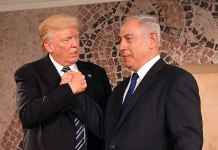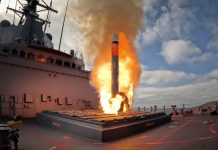The inconsistency in the US’ foreign policy towards India, China, Israel or Iran has been clearly biased. While US’ allies like India and Israel get the support or at least the benefit of the doubt, its foes like Iran, China bear the brunt of sanctions.
India or China: Whom Did Israel Support During The Intense India-China Border Standoff?
According to an Indian PhD scholar at Yonsei University – India, an ally of the US has always enjoyed political consensus on Capitol Hill owing it geopolitics whereas countries like China and Iran have met with severe sanctions.
“Apart from the legality of India’s decision to split Jammu and Kashmir, the communication blackout, illegal arrests and detentions should have raised eyebrows in the West. National security is being used as an excuse to curb fundamental freedoms of speech and expression,” an author with China’s CGTN writes.
Meanwhile, US President Donald Trump signed the Uygur Human Rights Policy Act of 2020 into law. The law “holds accountable the perpetrators of human rights violations and abuses such as the systematic use of indoctrination camps, forced labour and intrusive surveillance to eradicate the ethnic identity and religious beliefs of Uyghurs and other minorities in China,” said Trump.
According to the expert, America’s response to the longest ever internet suspension in a democracy has been supportive to the Indian government, calling it an internal matter, offering mediation, only if both countries accepted the offer, and holding a ‘Howdy Modi’ rally to welcome Modi to America.
Last year in August, New Delhi scrapped the autonomous status of Jammu and Kashmir and imposed a communication blockade in the region. Several political leaders and people opposing the move were put under house arrest.
“India’s argument of “necessary evil” to control terrorism and separatist movements was accepted and Kashmir became an internal matter, however, America consistently mentions Xinjiang or Hong Kong to criticize the Chinese government,” argued the expert.
While India is not a party to the Nuclear Non-Proliferation Treaty (NPT), it enjoys support from the US and waiver to the guidelines of the Nuclear Suppliers Group (NSG) to trade in nuclear items.
The NPT is a landmark international treaty whose objective is to prevent the spread of nuclear weapons and weapons technology, to promote cooperation in the peaceful uses of nuclear energy and to further the goal of achieving nuclear disarmament and general and complete disarmament.
On the other hand, despite compliance by Iran, the US withdrew from the Iran Nuclear Deal and imposed heavy sanctions on Iran. “The currency value and oil exports have collapsed, making Iran accuse the US of economic terrorism in the region, of willfully depriving Iran of food and medicine based on circumstantial evidence,” wrote the expert.
Another prominent example of inconsistency in the US’s foreign policy is of India’s digital trade policy with consequences limited removal of India’s preferential access to U.S. markets and strong criticism.
Meanwhile, the US-China trade war is much more intense with severely high tariffs. “The Trump tariffs would make it difficult for Indian exporters and American consumers, however, the duty hikes are nowhere near the same as China,” wrote the expert.
“India is being investigated under Section 301 along with many other countries, mostly European Union, but the difference is that there is no definitive action and it’s an invitation to a consultation on India’s digital tax policies rather than an intimation of tariffs,” the expert added.
While no two international incidents have the same scale or scope, justice and equality are the fundamental principles of democracy which the Trump administration has failed to uphold. “American double standards reduce its already dwindling credibility and increase uncertainty,” the expert writing for CGTN concluded.




